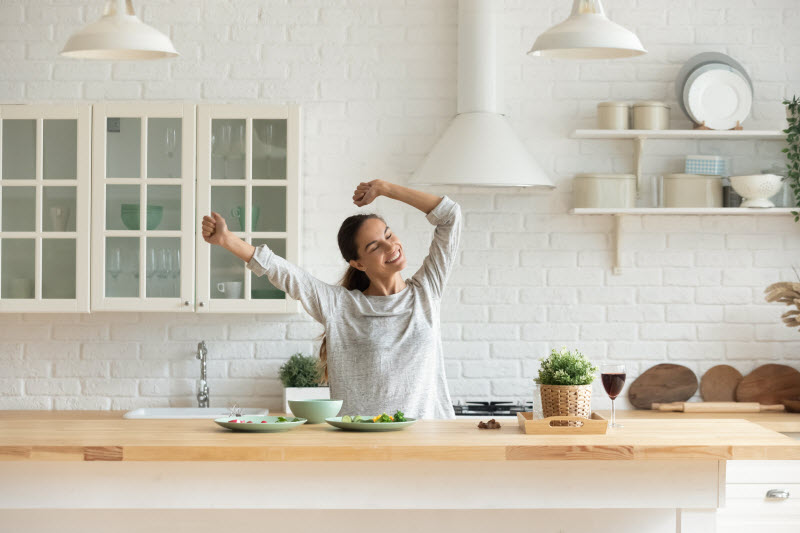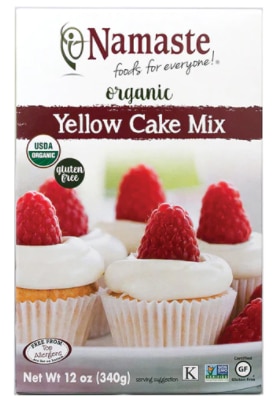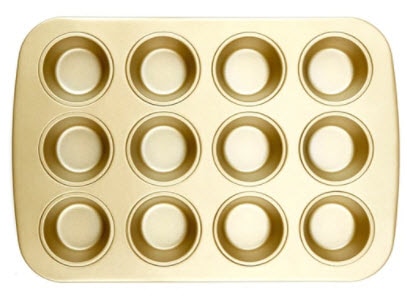In the age of languishing, a trend concurrent with the pandemic’s unexpected twists and turns, why not cross over into flourishing? All it may take is a scant pilgrimage into your kitchen. Foraging in the kitchen not only satisfies a rumbling tummy, but it can also help lift your spirits.
One study found that small, everyday projects in the kitchen made participants feel more enthusiastic about their pursuits the next day. And bonus points if you go rogue and tweak a recipe, or better yet, ditch any kind of recipe at all. The more creativity you bring into the kitchen, the happier you may feel. Being creative for a little while each day makes people feel like they are “flourishing“—a psychological term that describes the feeling of personal growth.
Cooking Therapy: The Benefits are Real
Cooking serves as a creative outlet—albeit an imminently practical one. It helps with agency, confidence, mindfulness and mastery, boosts self-esteem, encourages shared experiences with others, and is often a catalyst for adopting nourishing health habits.
In addition, culinary therapy is a trending treatment at a growing number of mental health clinics and therapists’ offices, proving effective for a wide range of mental and behavioral health conditions, including depression, anxiety, eating disorders, ADHD and addiction.
Here are seven ways you can cook your way to happiness.
1. Alleviates depression
According to psychologists, cooking and baking are therapeutic because they fit a type of therapy known as “behavioral activation,” which studies how behaviors influence emotions. Engaging in certain activities can alleviate depression by “increasing goal-oriented behavior and curbing procrastination.” It helps break through the paralysis of depression and sets you up for success through finding meaning in the simple tasks of daily living.
2. Encourages self esteem
Cooking can help you focus on a task and complete a goal, which gives you a sense of power and control. And because there is built in repetition to the art of cooking, it’s easy to develop a sense of mastery around something as basic as say, scrambled eggs or avocado toast.
3. Positively impacts health
Cooking tends to translate into eating a healthier diet. The improvements in your nutritional status alone may positively influence your state of mind. Diet is such key component of mental health that it has inspired an entire field of medicine called nutritional psychiatry, which focuses on the intimate connection between food and mood
4. Boosts creativity
Many people describe cooking as ‘being in the zone,’ a creative, meditative state in which they lose track of time and just focus on the task at hand. If you are consumed by negative thoughts, worries, and doubt, cooking can be a healthy distraction. It gets your creative juices flowing, letting you steer clear of your mind chatter as you deal with the task at hand.
5. Provides purpose and community
If you are cooking for others, it is an act of altruism. You are providing them with something basic and primal, showing them that they have your support. This promotes well-being, positive growth and bonds within relationships. Cooking connects: You become more embedded and embodied in your community and it lets you feel like you’re providing a needed and useful service.
6. Offers self-care with benefits
Cooking is the ultimate in self-care—calming, mindful, creative—and with muffins or chicken soup at the end of it all. It has a whiff of the everyday sacred, a form of indigenous alchemy. You gather ingredients and transform them into something delicious that feeds body and spirit.
7. Counters anxiety
One study directly evaluated the impact of the cooking intervention on anxiety. In one study, almost half of 27 burn unit patients “strongly agreed or agreed” that they were less anxious in the kitchen after participating in cooking groups, including all seven patients who suffered burns in kitchens at home. Seventy-eight percent “strongly agreed or agreed” that the group activity distracted them from thinking about their burns, providing one possible explanation for the reduced anxiety.


 Namaste Foods Gluten-Free Yellow Cake Mix
Namaste Foods Gluten-Free Yellow Cake Mix Dash of That 12-Cup Gold Muffin Tin
Dash of That 12-Cup Gold Muffin Tin